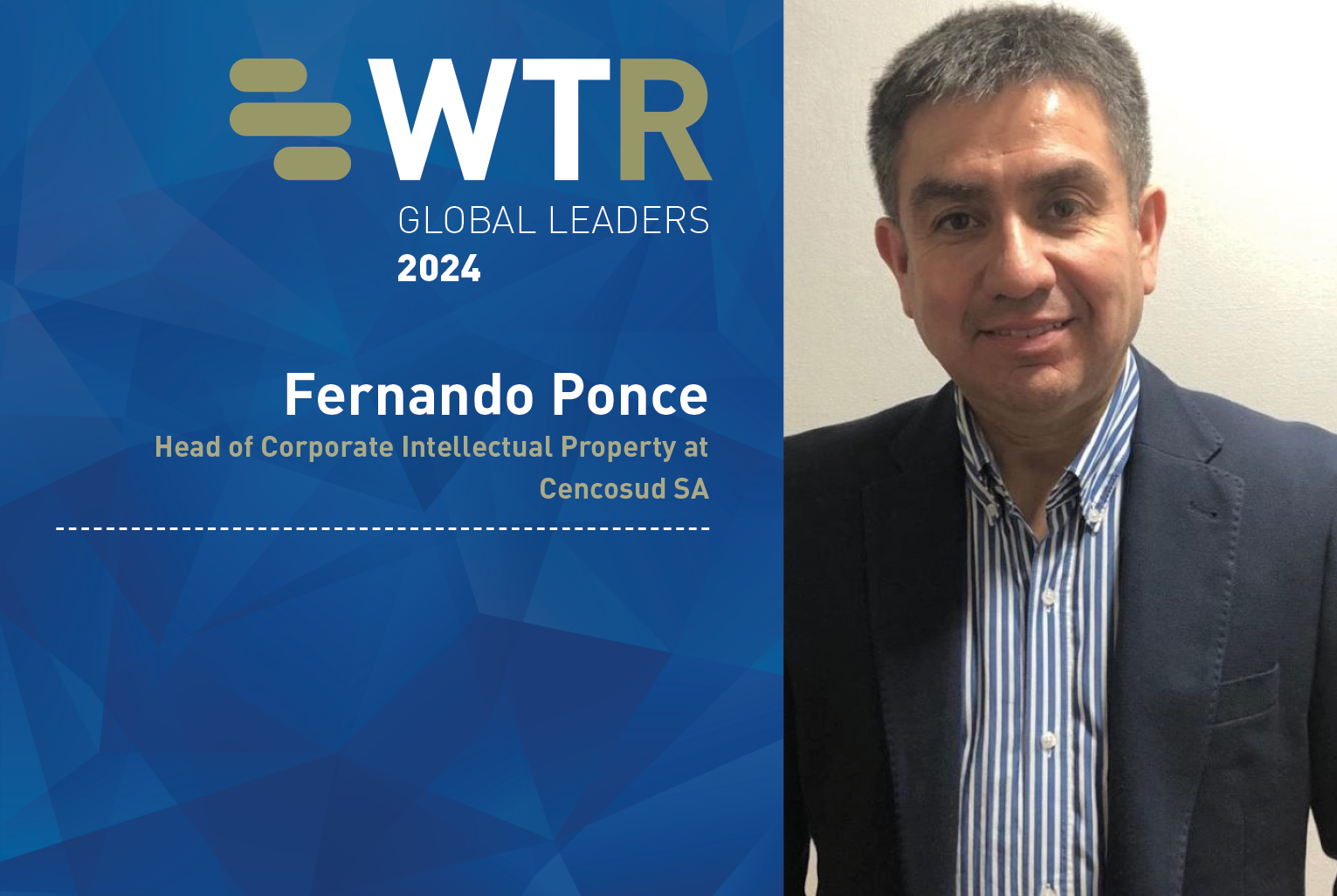Fernando Ponce

What is the biggest professional challenge you faced in the last 12 months and how did you overcome it?
Without a doubt, the main challenge in retail is the dynamics of the business – and intellectual property is no exception – supporting new projects and the creative process and evaluating risks while also remaining competitive. Fake Internet pages and social media accounts that do not belong to the company require a lot of time and attention from IP teams. Above all, ensuring that our consumers are not affected or confused when it comes to the commercial origin of products and services is critical.
How do you measure – and report on – brand valuation?
More than measuring and reporting, we develop standards that the entire organisation must consider for the reputation of our brands, to ensure that they are valued.
What recent decisions or legislative developments are having the greatest impact on trademark strategy in Chile right now?
Reforms to the Industrial Property Law – the so-called 'INAPI Short Law' – have been implemented, incorporating non-traditional trademarks (eg, 3D, olfactory and position trademarks) along with the obligation to use; a trademark registered in Chile must be thoroughly and effectively used in the market in order to maintain its validity.
In this regard, Chilean legislation is now aligned with international standards – leaving registered trademarks purely for defensive or speculative purposes, or with the aim of blocking a competitor from the market.
The new law allows one to request the expiration of an existing registration (granted or renewed) that has not been used within the timeframe of a minimum five-year period from the grant date.
In-house counsel are seeing increasing convergence in their roles, covering more fields, from broader brand protection to copyright and trade secrets. How is this affecting your practice on a day-to-day basis?
Without a doubt, we must be very attentive – beyond legal issues, the accelerated technological changes and AI challenges. Consumer protection standards, good market practices (ie, competition) and new marketing and advertising trends are challenging us to be relevant actors and an integral part of the business value chain.
IP firms around the world are exploring how AI tools can benefit their practice. What advice would you give to those trying to incorporate this rapidly evolving technology into their work?
Any tool is welcome, considering the constant changes in consumption, trends and tastes; due to the immediacy of accessing information, we can gain a lot of knowledge. It is the job of IP leaders to help each other do better work, provide guidelines, protect others' intellectual property and support business development with a global perspective. Without a doubt I would recommend incorporating technology, having access to knowledge and developing greater judgement skills in order to be better advisors.
Fernando Ponce
Head of Corporate Intellectual Property
Fernando Ponce’s career spans more than 25 years, covering IP-related matters in both transnational companies and law firms. He joined Cencosud in 2010 and has since led the entire strategy and management of the company’s IP assets, enabling the standardisation of brands for its different businesses while generating synergies and good practices. Mr Ponce is regularly invited to conferences to speak on brand management and protection strategies.